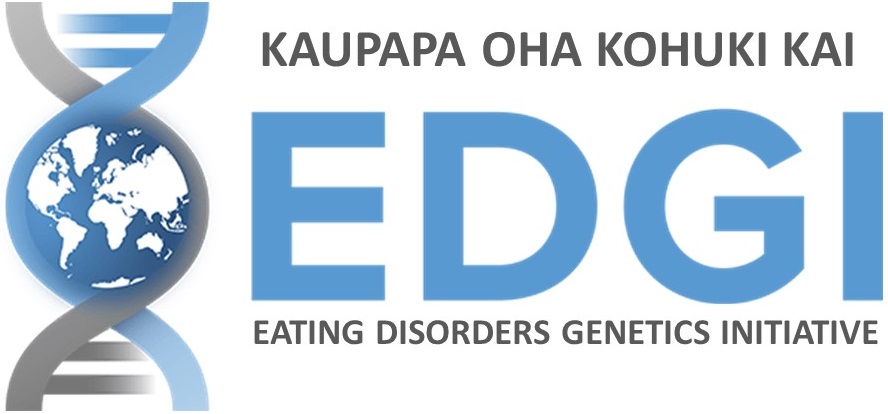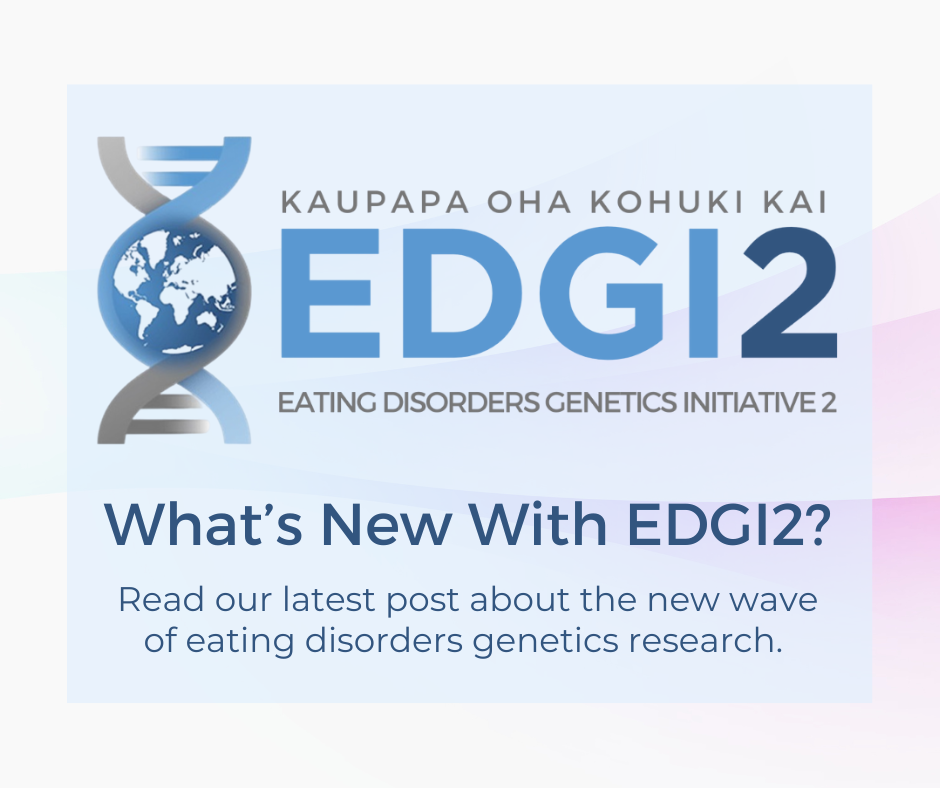Posts by edgi@otago.ac.nz
Break the Bias: How Global Science Is Shifting the Narrative on Eating Disorders
Each year on World Eating Disorders Action Day, we unite across continents to shatter myths, amplify lived experiences, and demand better for those affected by eating disorders. The theme for 2025—Break the Bias: Support Families—resonates deeply with those of us who have seen firsthand how stigma and misunderstanding compound the suffering of individuals and their…
Read MoreWorld Eating Disorders Action Day: Break the Bias and Support Families
June 2nd 2025 is World Eating Disorders Action Day and this year’s theme is Break the Bias and Support Families (https://www.worldeatingdisordersday.org/). The EDGI2 team is a collaboration across the US, Mexico, Denmark, New Zealand, Australia, and Sweden, using eating disorder genetics research to get on board with this global effort! You can read more about…
Read MoreARFID & Co-Occurring Diagnoses: Is There a Line to Draw?
Avoidant/restrictive food intake disorder (ARFID) is found at higher rates in certain clinical populations and within certain neurotypes. Increasingly, researchers and clinicians are considering the question of whether certain strict eating behaviours are a patient’s necessary responses to manage a medical condition-such as a food allergy or gastrointestinal issues-or whether these eating behaviours have strayed…
Read MoreIntermittent Fasting: More mentally harmful and less physically beneficial than claimed?
Intermittent Fasting and Disordered Eating Intermittent fasting is an eating pattern that limits food intake to specific time periods each day. There are various IF schedules, each differing in the length of fasting periods, ranging from several hours to an entire day. While intermittent fasting has gained popularity as a weight-loss strategy and is often…
Read MoreNew study highlights specific recovery needs of youth with ARFID
ARFID Characteristics During Hospital Treatment ARFID stands for Avoidant/Restrictive Food Intake Disorder. ARFID is an eating disorder where someone avoids food, but not due to concerns about weight or body shape. Unlike anorexia nervosa, where people’s disordered eating focuses on appearance and weight loss, ARFID food issues are often caused by things like lack of…
Read MoreEDGI2: The Next Wave of Eating Disorders Research
EDGI1 vs. EDGI2: What’s New in the Next Wave of Our Eating Disorders Study? Our Eating Disorders Genetics Initiative (EDGI) study has entered its next phase! Building on the success of EDGI1, which saw 3,500 New Zealanders participate, EDGI2 is expanding our understanding of eating disorders even further by allowing us to bring in an…
Read MoreCopy Number Variants (CNVs) and Their Role in Anorexia Nervosa
Copy number variants (CNVs) are changes in DNA where sections are either repeated (duplication) or absent (deletion). These genetic differences can affect how genes work, with larger CNVs potentially causing bigger effects. Rare CNVs might be more important for rarer disorders-like anorexia nervosa-than common CNVs. Anorexia nervosa is a complex psychiatric disorder. Earlier research showed…
Read MoreGenes & Genomes – Insights about our research field
What Are Genes and Why Do They Matter? Every cell in your body contains DNA, a unique code that carries the instructions for how your body works. Within this code are over 20,000 sections called genes. Each gene provides specific instructions for making functional molecules such as proteins, which play essential roles in keeping your…
Read MoreEnd of 2024 Update from the EDGI Research Team
As December 2024 arrives, we thought it was a good time to reflect on the year. Here’s an update on our activities over 2024. EDGI Progress: Recruitment Milestones The above images provide insights into the progress we have made in Aotearoa New Zealand & internationally. By March of 2024, the following were achieved: 5,006 participants…
Read MoreBringing binge eating disorder out of the shadows
Though often in the news, eating disorders are poorly understood. When thinking about eating disorders, people usually think of anorexia nervosa or sometimes bulimia nervosa, but rarely about the most prevalent – binge eating disorder (BED). People affected by BED regularly eat large amounts of food while feeling unable to control their eating. These binges…
Read More







